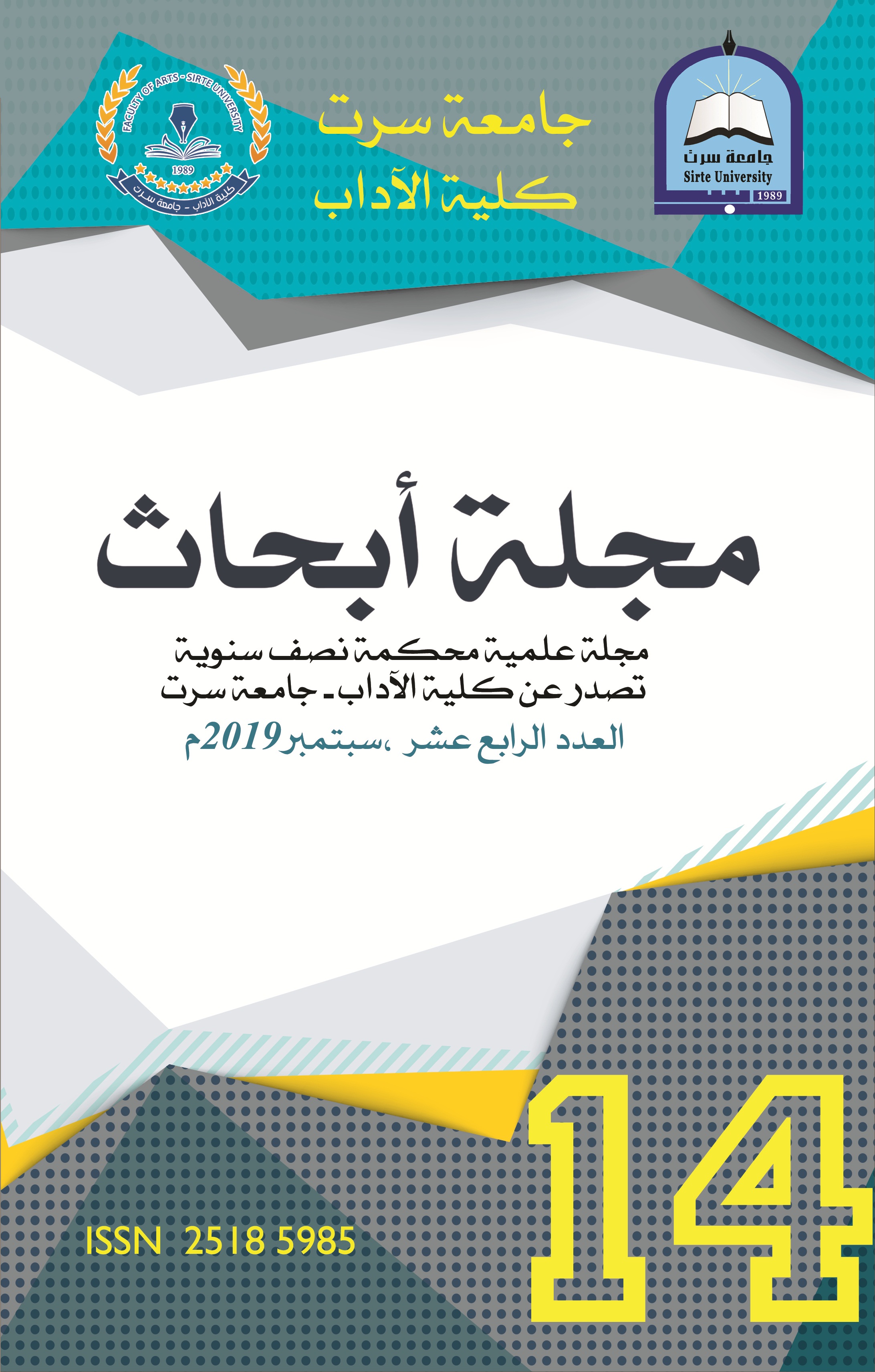Students’ Difficulties in Changing Active Voice into Passive Voice
DOI:
https://doi.org/10.37375/abhat.vi14.703Keywords:
passive voice, University of Benghazi, tenses, active and passive sentencesAbstract
This research explores sixth semester undergraduate students’ attempts in rendering active sentences into passive, and sheds some light on the different tenses in the active forms of the sentences and tries to discover various factors, which make students fail to provide passive sentences. Questionnaires were used as data collection tool. In addition, eleven active sentences were used in the test. They were asked to change them into passive. Each sentence represents an English test in order to see which tense they most fail to render it into passive. Fifteen students from department of English, EL-Marj branch, faculty of education, university of Benghazi undertake this test. The analysis of the tests interviews revealed that although students take passive voice in their grammar courses, most of them failed to render them successfully into passive. The highest errors of the passive voice were at present perfect progressive tense. In addition, it seems that time of the semester systems in Libya was not helpful to give grammar lessons in detail to the students. This paper provides valuable messages to the University of Benghazi to reconsider time in order to enable academic staff members to give grammar lessons in detail to the students.

















